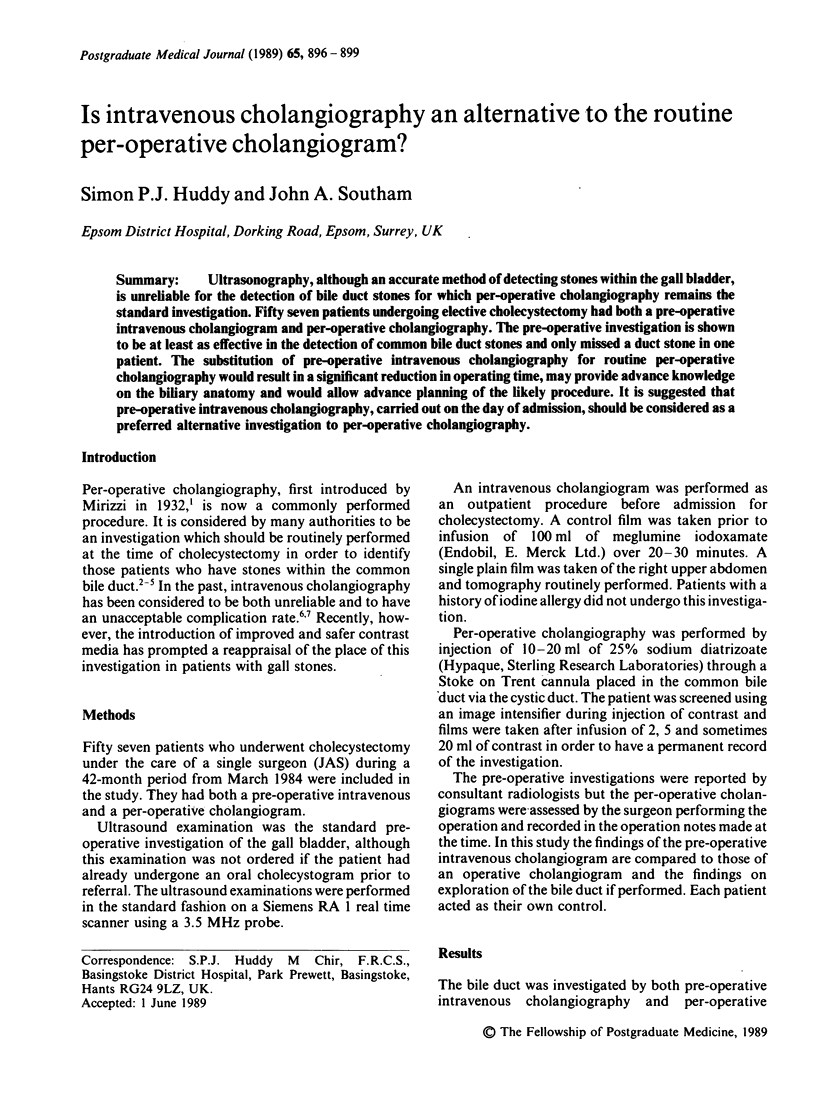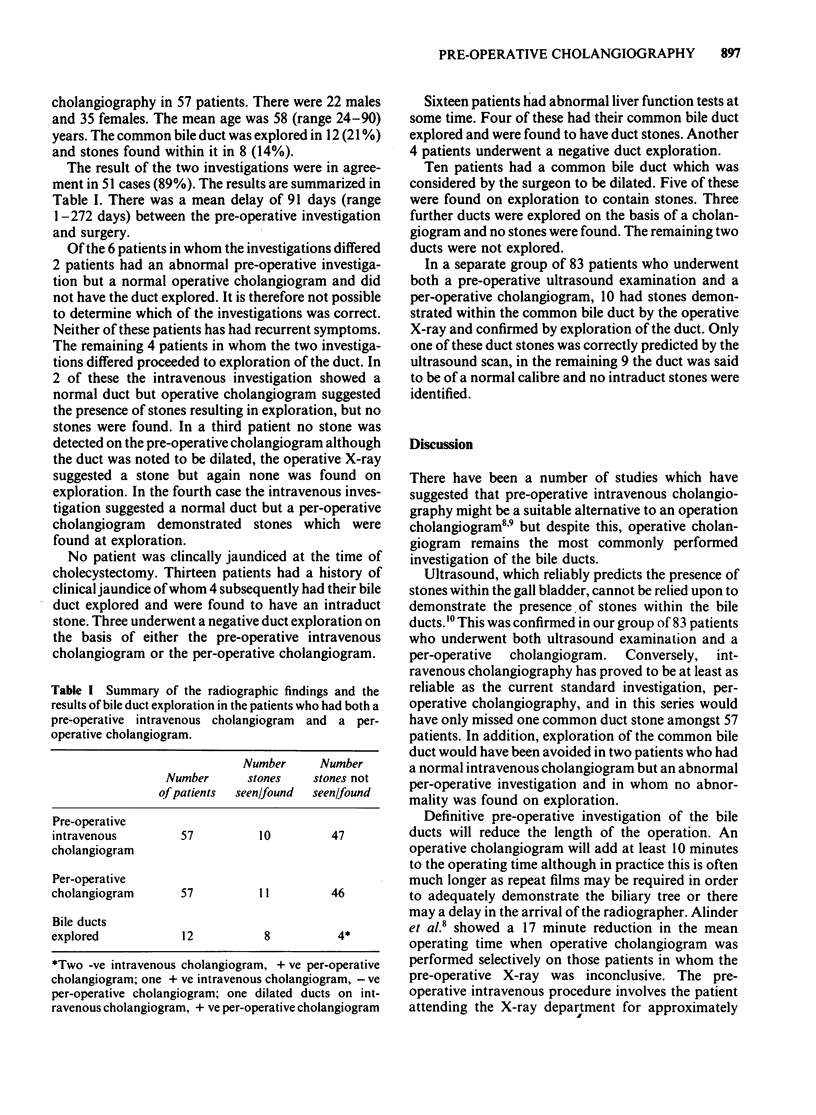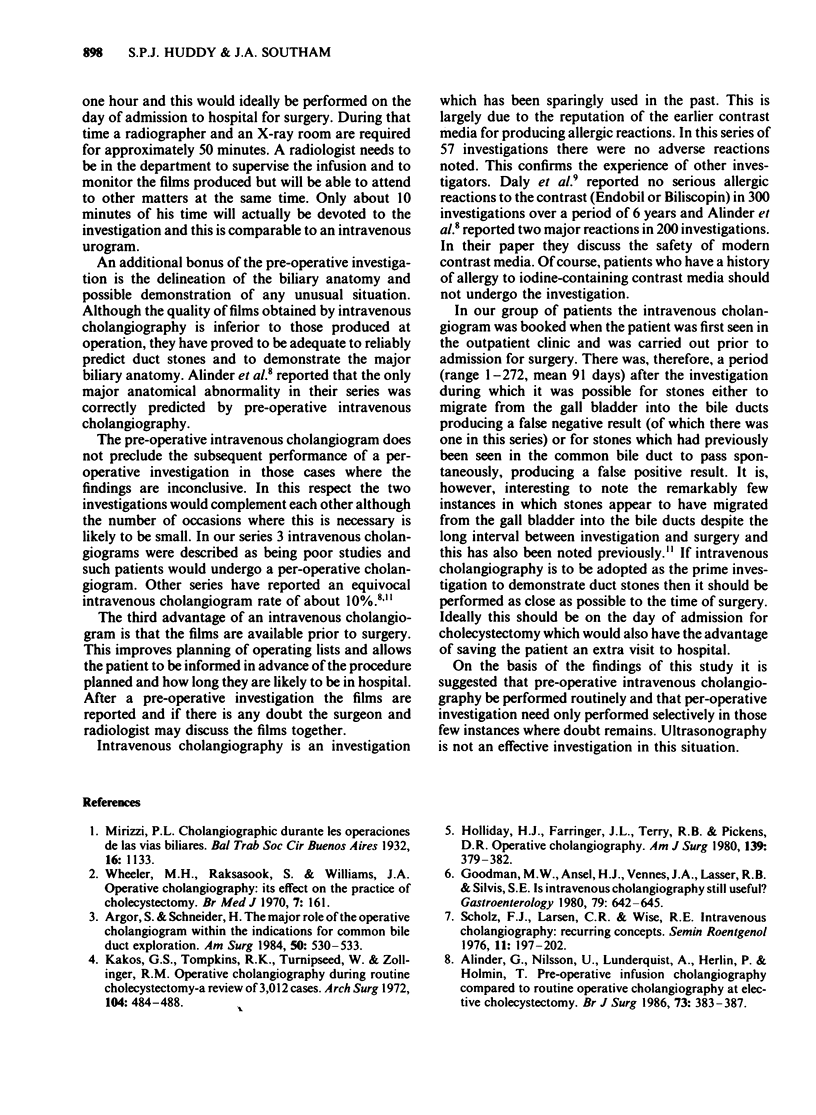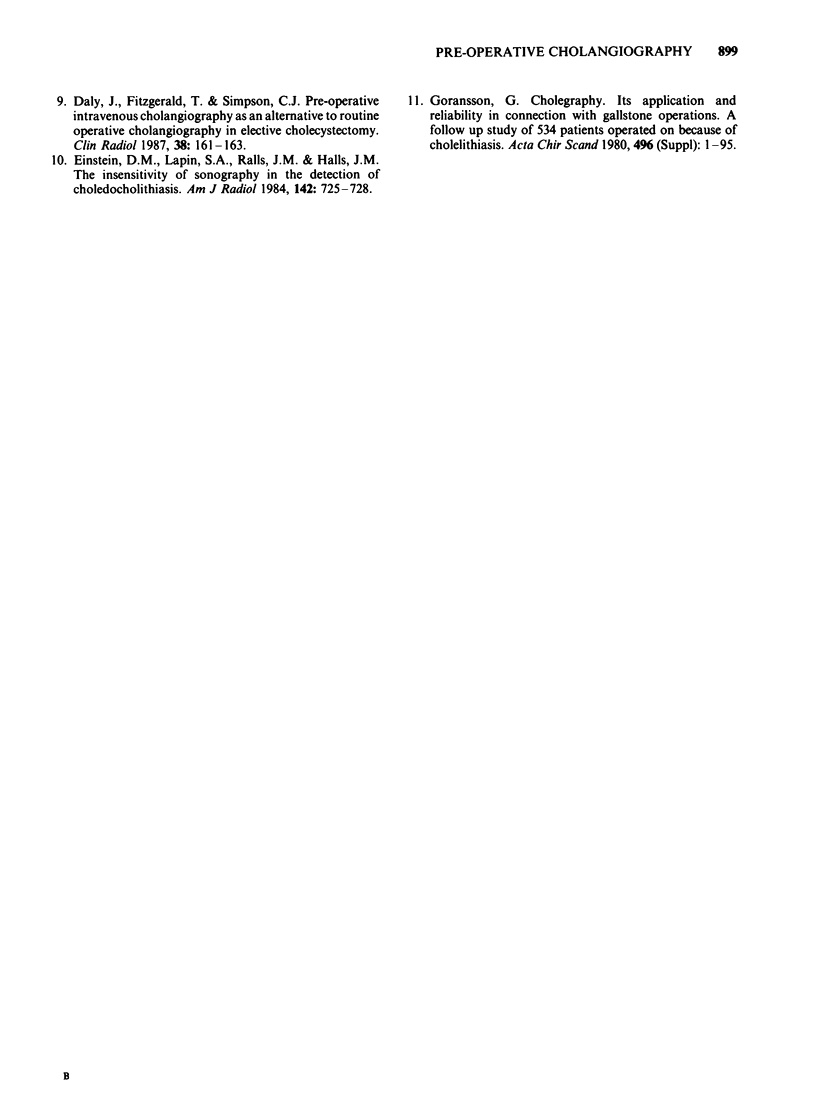Abstract
Ultrasonography, although an accurate method of detecting stones within the gall bladder, is unreliable for the detection of bile duct stones for which per-operative cholangiography remains the standard investigation. Fifty seven patients undergoing elective cholecystectomy had both a pre-operative intravenous cholangiogram and per-operative cholangiography. The pre-operative investigation is shown to be at least as effective in the detection of common bile duct stones and only missed a duct stone in one patient. The substitution of pre-operative intravenous cholangiography for routine per-operative cholangiography would result in a significant reduction in operating time, may provide advance knowledge on the biliary anatomy and would allow advance planning of the likely procedure. It is suggested that pre-operative intravenous cholangiography, carried out on the day of admission, should be considered as a preferred alternative investigation to per-operative cholangiography.
Full text
PDF



Selected References
These references are in PubMed. This may not be the complete list of references from this article.
- Alinder G., Nilsson U., Lunderquist A., Herlin P., Holmin T. Pre-operative infusion cholangiography compared to routine operative cholangiography at elective cholecystectomy. Br J Surg. 1986 May;73(5):383–387. doi: 10.1002/bjs.1800730524. [DOI] [PubMed] [Google Scholar]
- Argov S., Schneider H. The major role of the operative cholangiogram within the indications for common bile duct exploration. Am Surg. 1984 Oct;50(10):530–533. [PubMed] [Google Scholar]
- Daly J., Fitzgerald T., Simpson C. J. Pre-operative intravenous cholangiography as an alternative to routine operative cholangiography in elective cholecystectomy. Clin Radiol. 1987 Mar;38(2):161–163. doi: 10.1016/s0009-9260(87)80020-x. [DOI] [PubMed] [Google Scholar]
- Einstein D. M., Lapin S. A., Ralls P. W., Halls J. M. The insensitivity of sonography in the detection of choledocholithiasis. AJR Am J Roentgenol. 1984 Apr;142(4):725–728. doi: 10.2214/ajr.142.4.725. [DOI] [PubMed] [Google Scholar]
- Goodman M. W., Ansel H. J., Vennes J. A., Lasser R. B., Silvis S. E. Is intravenous cholangiography still useful? Gastroenterology. 1980 Oct;79(4):642–645. [PubMed] [Google Scholar]
- Göransson A. M. Cholegraphy. Its applicability and reliability in connection with gall-stone operations. A follow-up study of 534 patients operated on because of cholelithiasis. Acta Chir Scand Suppl. 1980;496:1–95. [PubMed] [Google Scholar]
- Holliday H. J., Farringer J. L., Jr, Terry R. B., Pickens D. R., Jr Operative cholangiography. Review of 7,529 operations on the biliary tree in a community hospital. Am J Surg. 1980 Mar;139(3):379–382. doi: 10.1016/0002-9610(80)90297-4. [DOI] [PubMed] [Google Scholar]
- Kakos G. S., Tompkins R. K., Turnipseed W., Zollinger R. M. Operative cholangiography during routine cholecystectomy: a review of 3,012 cases. Arch Surg. 1972 Apr;104(4):484–488. doi: 10.1001/archsurg.1972.04180040098017. [DOI] [PubMed] [Google Scholar]
- Scholz F. J., Larsen C. R., Wise R. E. Intravenous cholangiography: recurring concepts. Semin Roentgenol. 1976 Jul;11(3):197–202. doi: 10.1016/0037-198x(76)90051-1. [DOI] [PubMed] [Google Scholar]
- Wheeler M. H., Raksasook S., Williams J. A. Operative cholangiography. Its effect on the practice of cholecystectomy. Br Med J. 1970 Oct 17;4(5728):161–164. doi: 10.1136/bmj.4.5728.161. [DOI] [PMC free article] [PubMed] [Google Scholar]


